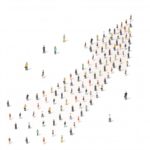Tags Digital Transformation Regulation Sharing Economy
Every year more and more people around the world are ready to use goods and services without buying them, instead giving money for the opportunity to use them at the right time. This is causing a gradual shift in mentality – from a mentality of ownership to one where everything can be rented and used as needed. This new economic reality, often referred to as the sharing economy, is also creating new opportunities for workers as well. It is expected that 540 million people will be able to earn an income remotely through online sharing economy platforms, with another 200 million using them to supplement their incomes. Moreover, 230 million people will be able to use them to shorten the time it takes to find a job, and 50 million will be able to switch from informal to formal employment.
The sharing economy does have weaknesses too, including some major concerns that need to be overcome. Questions of taxation and compliance with regulations are uncertain. In an economy with, essentially, shared ownership, who is the taxpayer? And who is responsible for ensuring compliance with all technical regulations and safety requirements? Perhaps the most important question is: if everything belongs to both everybody and nobody at the same time, how can we ensure a respect for goods? Take the example of a Chinese company that rents umbrellas by the minute. Several weeks after launching, the company found that more than 300,000 umbrellas had already “disappeared” from circulation.
While it remains uncertain exactly how the sharing economy will shape our lives in future, it is certain that it will shape, in some meaningful way, how we live and work. The annual value of the sharing economy is currently estimated at EUR 28 million, a figure expected to rise to a staggering EUR 570 billion by 2035. The sharing economy is more than just some upstart idea or quaint novelty affecting only niche industries. Rather, it is becoming a catalyst for changing the ways we work and live, already having encroached into more and more aspects of our daily lives – from the way we travel to the way we use umbrellas.
 BFC Bulletins Monthly News Digest
BFC Bulletins Monthly News Digest




